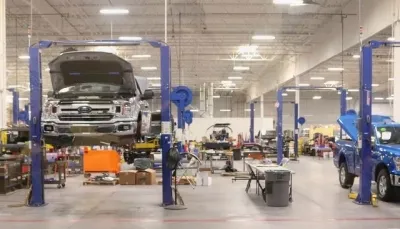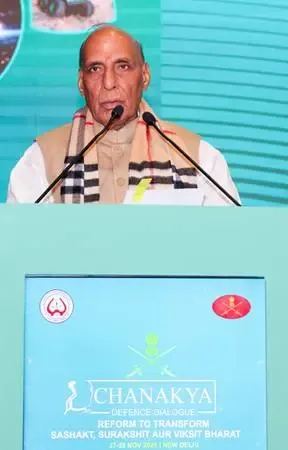Is India Set to Become a Global Hub for Electric Car Manufacturing?

Synopsis
Key Takeaways
- The scheme aims to attract global investment in electric vehicle manufacturing.
- Manufacturers can import electric cars at a reduced customs duty for five years.
- Investment of at least Rs 4,150 crore is mandatory for applicants.
- Annual import of 8,000 electric vehicles is permitted under the reduced duty rate.
- Aligns with India's goals for sustainability and economic growth.
New Delhi, June 2 (NationPress) The government has unveiled new guidelines aimed at attracting substantial investments from international manufacturers in the electric vehicle sector, positioning India as a global manufacturing center for e-vehicles.
To incentivize major global players like Tesla, approved applicants will be permitted to import completely built units (CBUs) of electric cars priced at a minimum CIF (cost insurance and freight) of $35,000, benefiting from a reduced customs duty of 15% for five years from the application approval date.
Applicants must invest at least Rs 4,150 crore as part of the scheme’s requirements.
The scheme permits a maximum of 8,000 electric four-wheelers to be imported annually at the reduced duty rate, with provisions for unutilized import limits to be carried over.
As per the guidelines, the total duty concession per applicant is capped at Rs 6,484 crore or the committed investment of Rs 4,150 crore, whichever amount is lesser.
The Standard Operating Procedure (SOP) under the Production Linked Incentive (PLI) Scheme for the Automobile and Auto Component sector will be utilized to evaluate the Domestic Value Addition (DVA) of the products eligible under the initiative.
The DVA certification for products manufactured in India by approved applicants will be conducted by testing agencies authorized by the Ministry of Heavy Industries.
Investments must focus on domestic manufacturing, with clear distinctions made if a brownfield project is involved, as stipulated in the notification.
Eligible expenditures include costs related to new plants, machinery, equipment, and engineering research and development (ER&D), while land costs will not be included. However, the main plant buildings and utilities can be counted, provided they do not exceed 10% of the total committed investment.
Costs associated with charging infrastructure are also eligible, accounting for a maximum of 5% of the committed investment.
Each applicant’s commitment to establishing manufacturing facilities, achieving DVA, and fulfilling the scheme’s conditions must be secured by a bank guarantee from a scheduled commercial bank in India, valued at the total duty to be waived or Rs 4,150 crore, whichever is higher, during the scheme’s duration. This bank guarantee must remain valid throughout the scheme period.
This initiative is poised to draw investments from global EV manufacturers, solidifying India's status as a competitive manufacturing destination for e-vehicles. It will also elevate India’s presence in the global market for electric vehicles, generating job opportunities and supporting the 'Make in India' vision, according to official statements.
This transformative scheme aligns with India's national objectives of achieving net-zero emissions by 2070, promoting sustainable mobility, fostering economic growth, and minimizing environmental impact. It aims to firmly establish India as a leading global hub for automotive manufacturing and innovation.









